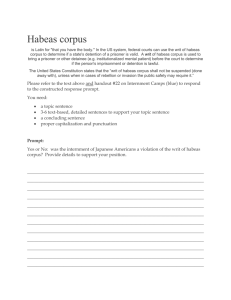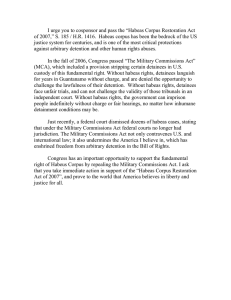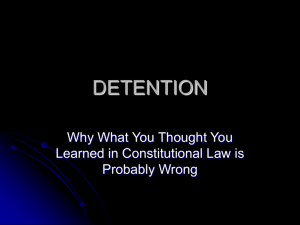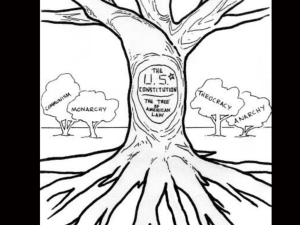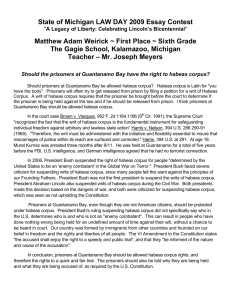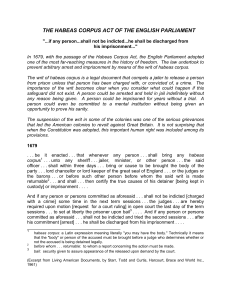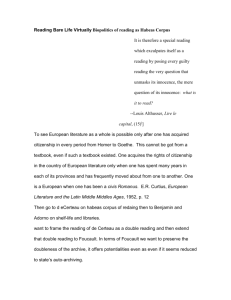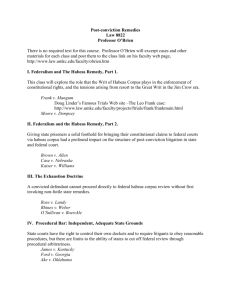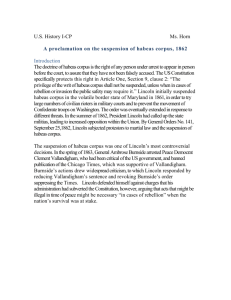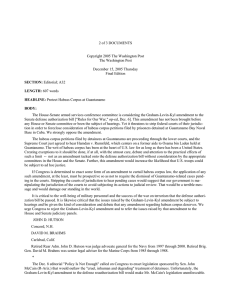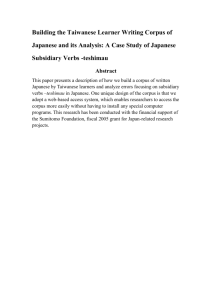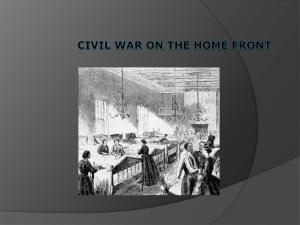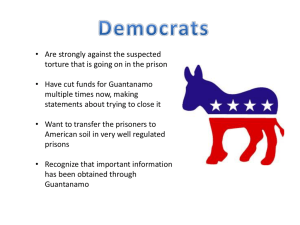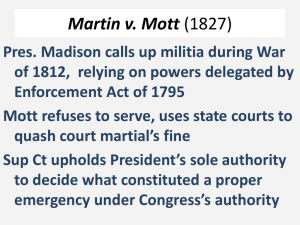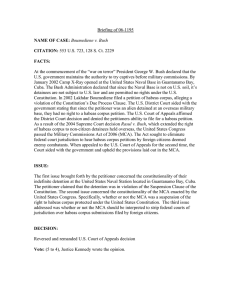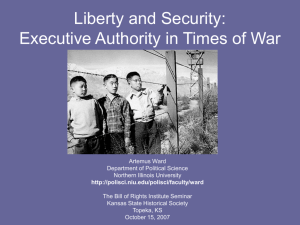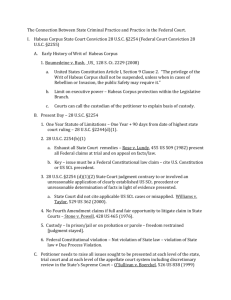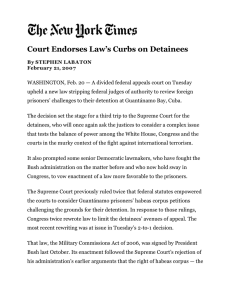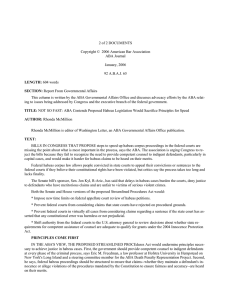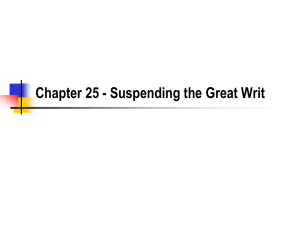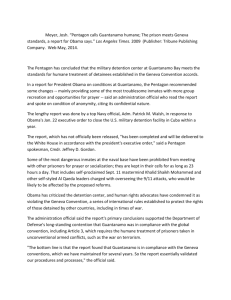State of Michigan LAW DAY 2008 Essay Contest Evan Rahul D'Silva
advertisement
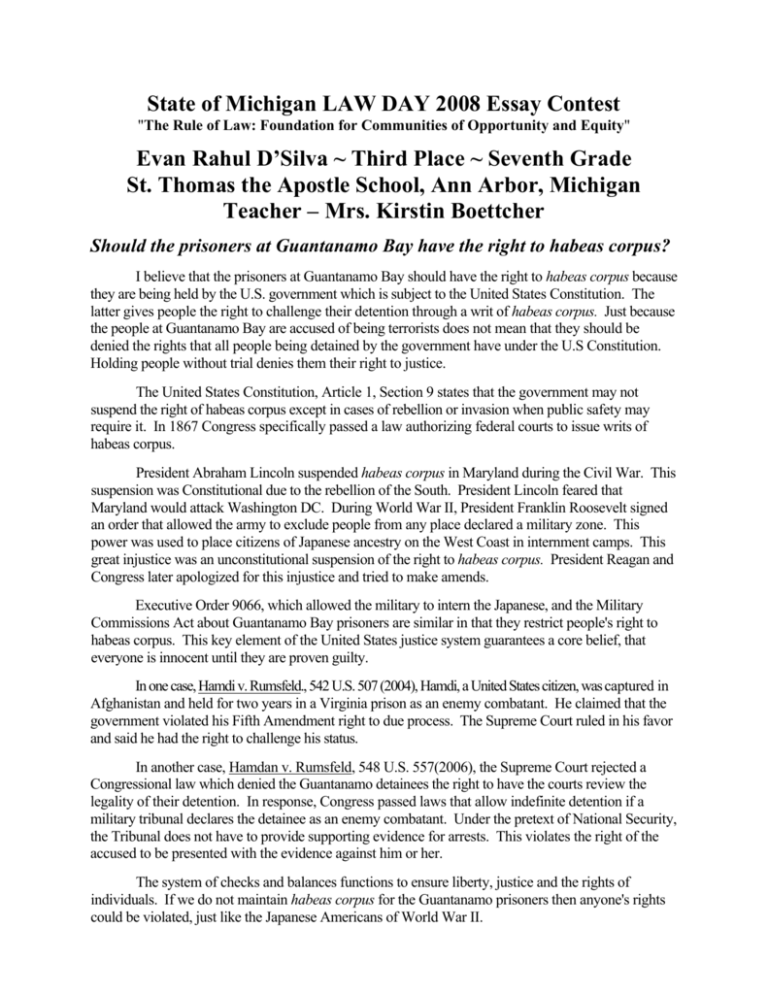
State of Michigan LAW DAY 2008 Essay Contest "The Rule of Law: Foundation for Communities of Opportunity and Equity" Evan Rahul D’Silva ~ Third Place ~ Seventh Grade St. Thomas the Apostle School, Ann Arbor, Michigan Teacher – Mrs. Kirstin Boettcher Should the prisoners at Guantanamo Bay have the right to habeas corpus? I believe that the prisoners at Guantanamo Bay should have the right to habeas corpus because they are being held by the U.S. government which is subject to the United States Constitution. The latter gives people the right to challenge their detention through a writ of habeas corpus. Just because the people at Guantanamo Bay are accused of being terrorists does not mean that they should be denied the rights that all people being detained by the government have under the U.S Constitution. Holding people without trial denies them their right to justice. The United States Constitution, Article 1, Section 9 states that the government may not suspend the right of habeas corpus except in cases of rebellion or invasion when public safety may require it. In 1867 Congress specifically passed a law authorizing federal courts to issue writs of habeas corpus. President Abraham Lincoln suspended habeas corpus in Maryland during the Civil War. This suspension was Constitutional due to the rebellion of the South. President Lincoln feared that Maryland would attack Washington DC. During World War II, President Franklin Roosevelt signed an order that allowed the army to exclude people from any place declared a military zone. This power was used to place citizens of Japanese ancestry on the West Coast in internment camps. This great injustice was an unconstitutional suspension of the right to habeas corpus. President Reagan and Congress later apologized for this injustice and tried to make amends. Executive Order 9066, which allowed the military to intern the Japanese, and the Military Commissions Act about Guantanamo Bay prisoners are similar in that they restrict people's right to habeas corpus. This key element of the United States justice system guarantees a core belief, that everyone is innocent until they are proven guilty. In one case, Hamdi v. Rumsfeld., 542 U.S. 507 (2004), Hamdi, a United States citizen, was captured in Afghanistan and held for two years in a Virginia prison as an enemy combatant. He claimed that the government violated his Fifth Amendment right to due process. The Supreme Court ruled in his favor and said he had the right to challenge his status. In another case, Hamdan v. Rumsfeld, 548 U.S. 557(2006), the Supreme Court rejected a Congressional law which denied the Guantanamo detainees the right to have the courts review the legality of their detention. In response, Congress passed laws that allow indefinite detention if a military tribunal declares the detainee as an enemy combatant. Under the pretext of National Security, the Tribunal does not have to provide supporting evidence for arrests. This violates the right of the accused to be presented with the evidence against him or her. The system of checks and balances functions to ensure liberty, justice and the rights of individuals. If we do not maintain habeas corpus for the Guantanamo prisoners then anyone's rights could be violated, just like the Japanese Americans of World War II.
